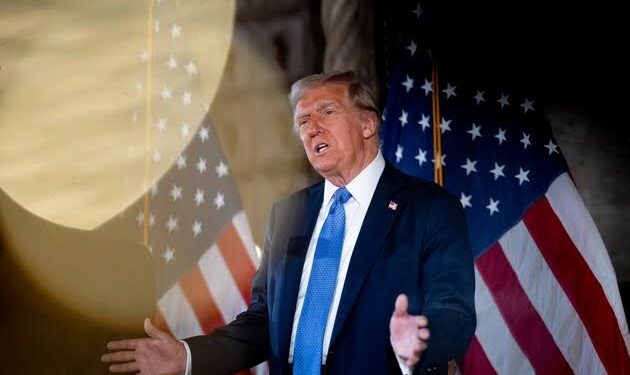US President Donald Trump sharply criticized a US Appeals Court ruling that struck down the majority of his tariffs as unlawful, calling the decision politically motivated and warning that removing tariffs would be a “total disaster” for the country.
The US Court of Appeals for the Federal Circuit in Washington, DC ruled that Trump had exceeded his authority by imposing certain tariffs under emergency powers, delivering a significant blow to one of his hallmark economic strategies.
Trump’s Reaction
In a fiery statement issued Saturday, Trump wrote:
“ALL TARIFFS ARE STILL IN EFFECT! Today a Highly Partisan Appeals Court incorrectly said that our Tariffs should be removed, but they know the United States of America will win in the end.”
Trump stressed that tariffs were essential to protect American industries:
“If these Tariffs ever went away, it would be a total disaster for the Country. It would make us financially weak… This Decision would literally destroy the United States of America.”
He added that tariffs remain the “best tool” to defend American workers and companies producing “Made in America” products, promising to take the fight to the Supreme Court.
What the Court Ruled
The court found that Trump overstepped his powers when he used the International Emergency Economic Powers Act (IEEPA) of 1977 to impose tariffs. Traditionally, IEEPA has been applied to freeze assets or enforce sanctions during national emergencies, not to levy duties.
“The statute bestows significant authority on the President… but none of these actions explicitly include the power to impose tariffs, duties, or the like, or the power to tax,” the judges wrote, according to Reuters.
The ruling struck down:
-
Trump’s “reciprocal” tariffs introduced in April during his trade disputes.
-
A separate set of tariffs from February, targeting China, Canada, and Mexico.
However, tariffs imposed under other statutes—such as those on steel and aluminum—remain unaffected.
The Legal Challenge
The court decision stemmed from two lawsuits:
-
One filed by five small US businesses affected by higher costs.
-
Another brought by 12 Democratic-led states, arguing Trump’s use of IEEPA violated the Constitution.
Both plaintiffs contended that the Constitution grants Congress, not the president, the power to impose taxes and tariffs, and that any delegation of this power must be narrow and explicit.
What’s Next
The Appeals Court allowed the existing tariffs to stay in effect until October 14, giving the Trump administration time to petition the Supreme Court.
Trump has made tariffs a central part of his trade policy, using them to pressure allies and rivals alike. With the Supreme Court now expected to weigh in, the ruling sets up a high-stakes legal battle that could reshape the





























